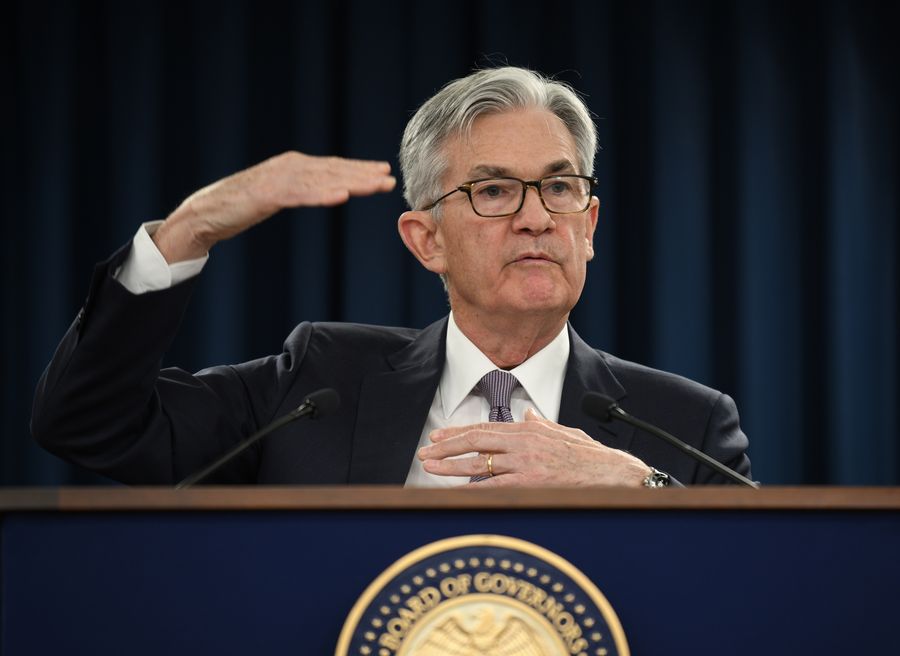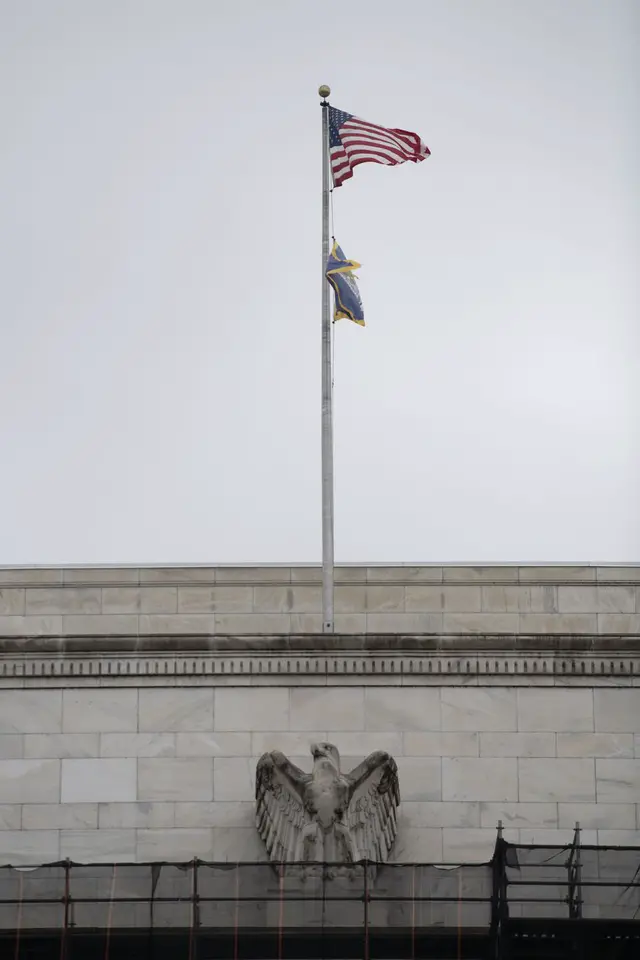Video: Fed Chairman Jerome Powell said Wednesday afternoon at a press conference,"Overall, economic activity will likely drop at an unprecedented rate in the second quarter." (Xinhua/Hu Yousong)
"Both the depth and duration of the economic down turn are extraordinarily uncertain and will depend in large part on how quickly the virus is brought under control," Powell added.
WASHINGTON, April 29 (Xinhua) -- The U.S. Federal Reserve on Wednesday kept its benchmark interest rate unchanged at the record-low level of near zero, as the COVID-19 fallout continues to ripple through the country.
"The ongoing public health crisis will weigh heavily on economic activity, employment, and inflation in the near term, and poses considerable risks to the economic outlook over the medium term," the Fed said in a statement after concluding a two-day policy meeting, adding the Fed's policy-making committee decided to maintain the target range for the federal funds rate at 0-0.25 percent.
"The Committee expects to maintain this target range until it is confident that the economy has weathered recent events and is on track to achieve its maximum employment and price stability goals," said the central bank.
The Fed noted that the virus and the measures taken to protect public health "are inducing sharp declines in economic activity and a surge in job losses," which have also significantly affected financial conditions.
In order to support the flow of credit to households and businesses, the Fed will continue to purchase Treasury securities and agency mortgage-backed securities "in the amounts needed" to support smooth market functioning, thereby fostering effective transmission of monetary policy to broader financial conditions.
Photo taken on March 23, 2020 shows the U.S. Federal Reserve building in Washington D.C., the United States. (Xinhua/Liu Jie)
The Fed statement came after the U.S. Commerce Department reported earlier in the day that U.S. real gross domestic product in the first quarter contracted at an annual rate of 4.8 percent, the biggest quarterly decline since the 2008 financial crisis.
"Overall, economic activity will likely drop at an unprecedented rate in the second quarter," Fed Chairman Jerome Powell said Wednesday afternoon at a press conference.
"Both the depth and duration of the economic down turn are extraordinarily uncertain and will depend in large part on how quickly the virus is brought under control," he said, adding the central bank is committed to using full range of tools to support the economy in this challenging time.
The Fed cut interest rates to near zero at two unscheduled meetings in March and began purchasing massive quantities of U.S. treasuries and agency mortgage-backed securities to repair financial markets. It also unveiled new lending programs to provide up to 2.3 trillion U.S. dollars to support the economy in response to the coronavirus outbreak.
However, "lowering interest rates cannot stop the sharp drop in economic activity caused by closures and social distancing," Powell said, noting low rates will not spur the economy if rates do not feed through to broader financial conditions, or if households and businesses are unable to get credit.
"Preserving the flow of credit is thus essential for mitigating the damage to the economy and setting stage for recovery," he said.

U.S. Federal Reserve Chairman Jerome Powell speaks during a press conference in Washington D.C., the United States, on Jan. 29, 2020. (Xinhua/Liu Jie)
More than 26 million Americans have applied for unemployment benefits since the COVID-19 epidemic forced widespread business closures in late March, according to the Labor Department.
Powell has made it the Fed's mission to keep firms and households solvent through the crisis, but it cannot carry the economy alone, said Diane Swonk, chief economist at Grant Thornton, a major accounting firm.
"More is needed. The consensus among economists is that we will need another $2 trillion in aid and stimulus added to the nearly $3 trillion Congress has already approved," she said.
The latest CNBC Fed Survey released Tuesday also showed that more money will be needed from the Fed and Congress to fight the coronavirus pandemic and the U.S. economy could take one to two years to rebound to full strength. ■
 简体中文
简体中文

